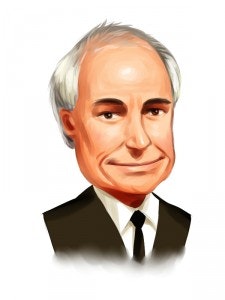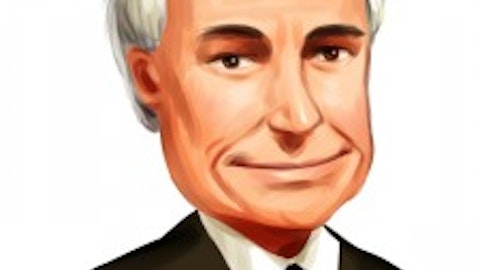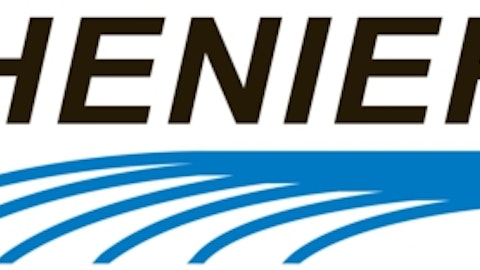Southeastern Asset Management, which has been one of the major investors in cement company CEMEX SAB de CV (NYSE:CX), has recently filed with the SEC to disclose that it owns a little under 13% of the shares outstanding. This is of course a substantial position in the $9.6 billion market cap company, but it is down from the 18% ownership that Southeastern had in February. Another caveat is that CEMEX’s stock is up almost 60% year to date and that the fund may be ignoring their bullish feelings about it in order to guarantee that some profits are locked in. Southeastern Asset Management is a large mutual fund managed by Mason Hawkins which is 100% employee owned and which has tended to outperform the S&P 500 over the last 20 years. See what other stocks it has reported owning.
In the third quarter of 2012 CEMEX’s revenue was down 2% compared to the same period in 2011, matching the decline in cement volumes. While the company lost money- as it did a year earlier, and in the first half of 2012 as well- the losses were smaller and various measures of cash flow increased. Still, the company’s valuation seems high given that Wall Street analysts expect continued losses in 2013. In terms of geography, CEMEX SAB de CV saw better numbers in Mexico and the U.S. with northern Europe- its largest market in terms of revenue, representing 28% of sales- offsetting these gains with a 15% decline. We don’t like that the company has this much exposure to Europe (adding in the Mediterranean market brings the total share of revenue to 37% of revenue).
Hedge funds seem to agree with us; out of all the funds and other notable investors (such as Southeastern) which we track in our database of quarterly 13F filings, the next largest position as of the end of June was Arrowstreet Capital’s position, which was worth less than $12 million and that time. Arrowstreet had sold 82% of the shares that it had owned at the beginning of April over the course of the second quarter.
There are two classes of companies that we can compare CEMEX SAB de CV to: other cement companies, and to businesses in other industries which are heavily exposed to global growth (take note of CEMEX’s beta of 2.7). In the first category we’d look at CRH PLC (NYSE:CRH) and Eagle Materials, Inc. (NYSE:EXP). These peers have actually been reporting profits recently, though not particularly high ones; Eagle, for example, trades at over 50 times trailing earnings. Wall Street analysts believe that a pickup in the global economy will bring its numbers higher, and the forward P/E is 20; the company has actually been delivering recently with good revenue growth and 49 cents per share of earnings in the third quarter (reflecting a high growth rate from a year ago). CRH has also been seeing better numbers, and at a market capitalization of over $13 billion it receives a higher valuation in the market than CEMEX. These might be better plays for the cement industry.
Caterpillar Inc. (NYSE:CAT) and Freeport-McMoRan Copper & Gold Inc. (NYSE:FCX) are two large-cap companies generally considered to depend on global economic growth. Caterpillar reported strong earnings growth in the third quarter compared to the third quarter of 2011, and its forward P/E of 10- fairly low as it is- is based on analyst expectations that earnings will be lower in 2013. We do see this as a possibility, but over the longer term it is probably a buy at these prices. Read our analysis of Caterpillar. Freeport-McMoRan is moving in the opposite direction: its numbers have been down recently due to a fall in price for basic materials (as China seems to be slowing down) but the sell-side sees an improvement next year with the stock carrying trailing and forward P/Es of 12 and 8, respectively. It certainly has commodity price risk, but might be a better investment than the cement companies as well.
We think that owners of CEMEX should probably be following Southeastern’s lead in cashing out here. There seem to be better stocks for investors who are looking for global macro opportunities.





